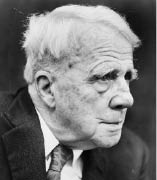 |
|
Frost: Get “out, out” of his house. Photo: U.S. Library of Congres |
Youths who think reading poetry is a form of punishment might feel vindicated by a sentence handed out in Vermont last month.
A judge there sentenced more than two dozen teens to attend poetry classes as punishment for breaking into the former dwelling of poet Robert Frost and trashing it during a beer party in December.
The incident occurred at the Homer Noble Farm in Ripton, where Frost stayed for more than 20 summers before his death in 1963. Middlebury College now owns the building.
The party began when about 50 people turned up to drink $100 worth of beer paid for by a 17-year-old former Middlebury College employee who knew how to gain access to the building, according to police reports. The participants did an estimated $10,600 in damage to Frost’s furnishings and fixtures, and left empty beer cans and drug paraphernalia amidst the rubble.
According to The Associated Press, police charged most of the 26 juveniles and two adults whom they arrested with trespassing. Nearly all entered guilty pleas. The juveniles’ records will be wiped clean upon their completion of the poetry classes.
Restitution and community service were also ordered in some of the cases. The adult who purchased the beer received a three-day jail term.
Frost biographer Jay Parini, 60, a Middlebury College professor, agreed to teach two classes to the vandals, using Frost’s poems, “The Road Not Taken” and “Out, Out-” as starting points and focusing on passages with particular relevance to the offenses. Eleven youths attended the first class, on June 2.
Although the sentence falls into the realm of “restorative justice,” which often includes readings and other efforts to help violators contemplate the effects of their crimes on their communities, don’t expect any longitudinal studies to determine whether studying poetry reduces recidivism.
In describing the thinking behind the sentencing, Prosecutor John Quinn told The AP, “I guess I was thinking that if these teens had a better understanding of who Robert Frost was, and his contribution to society, that they would be more respectful of other people’s property in the future and would also learn something from the experience.”
To read more, go to http://www.washingtonpost.com. Click on archives and enter Parini.































